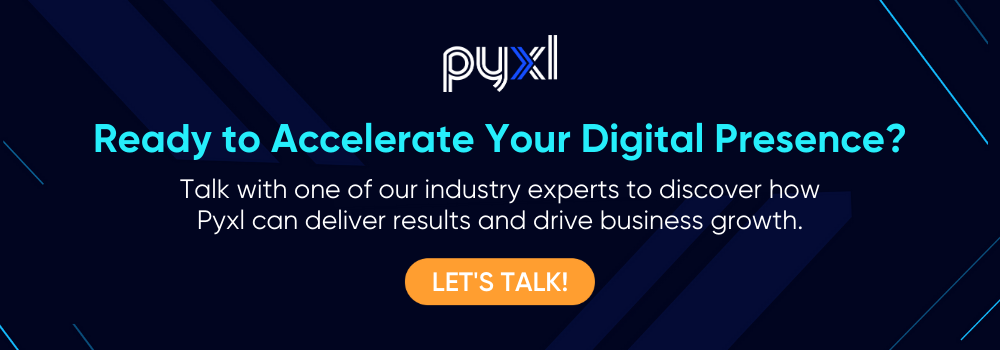Long ago, in a galaxy far far away, it was possible to draw in a stream of web traffic by simply stuffing your content with the right SEO keywords. For sites and blog posts alike, early marketers could gain heavy traffic by loading up every other sentence with a particular word or phrase. The secret was to identify a niche market with a healthy following and to then overload content with a keyword relating to that market.
But, do readers really stay engaged and satisfied when they land on keyword-packed content that sounds like a broken-record? It’s pretty safe to say…no, and Google took note of this. To combat these marketer’s blatant trickery, Google has been undergoing a constant series of algorithm updates over the past few years to change this and make for the best possible user experience.
Throughout the years, Google’s algorithm has been consistently enhanced in hopes of putting low-quality content in its proper place––at the bottom of the search results list––dun-dun-duuun. In fact, Google has updated its algorithm in many ways that work to discount those sites that rank due to brainless marketing measures. Recently, Google worked on ranking sites and web content based on a number of separate factors rather than any one or two factors alone.
Keywords & Their Relationship to SEO
Let’s clear the air by examining precisely how keywords affect a website, page or post’s search engine ranking. While there are multiple ways to optimize your content, keywords have by large been one of the most valuable resources for the past decade or so. Likely, you’ve heard or read the term “keyword” in recent years. Perhaps you’ve seen it on the web, in a magazine, scrolling down twitter or reddit, or maybe even heard it from a friend that works in digital marketing. But, what is the true essence of this term, and what’s so “key” about these words?
A keyword is simply a word that’s been chosen for strategic placement throughout online copywriting. These words are considered “key” because it’s been proven that people are searching for them in high volumes. Tools like Moz or WordStream can help give you needed information to identify the best keywords to place throughout your content, thus grabbing Google’s selective attention and boosting your chances of ranking on the first page of search results.
To give you a better understanding, here’s some insight on the different dimensions of keywords:
- Short-tail keywords: These are keywords that are 3 words or less, like “wedding ring” or “cheap running shoes”
- Long-tail keywords: These keywords are comprised of over 3 words, such as “vintage black leather jacket” and “new car for sale in Florida”
- LSI keywords: Latent Semantic Indexing keywords are phrases and words that are related to each other such as “drink”, “beverage” and “refreshment”
You might wonder––what’s the point of using less than 3 words, more than 3 words, and different words that mean the same thing? The gist is to find the words that aren’t being held captive by your competitors. Sometimes you’ll have to use more words, fewer words, or a variety of similar words that your target audience uses in their search attempts. However, there’s more to the optimization equation than just keyword-ing alone. Where exactly is SEO headed?
How Keywords Fit Into the Future of SEO
Following the advent of Google’s recent rewiring, many SEO experts believe there’s a shift from keywords to “quality content.” This means that search engines are aiming to deliver users with search results that aren’t just the most “about a certain topic” but the most accurate, well-written, relevant or location and time sensitive. Simply dropping the right word or phrase throughout each paragraph is no longer going to cut it on its own.
To further illustrate this point, check out these three unexpected but effective SEO factors that search engines are on the prowl for in the future:
- Technical Structure – This includes all the technical factors of your site like page speed, website navigation and URL structure.
- Content – This includes the actual content on your pages and site. From the use of engaging visuals and relevant, captivating writing, to keyword optimization and meta tags.
- Links – This includes link-building, back-linking and the overall quality of your website’s links. Also paying respect to how many other sites link to yours.
With the recent surge in voice search, marketers are also beginning to explore ways to optimize their content in regards to the human voice. While people might type out a quick phrase into a search bar like “city for good music,” a voice search might turn up something a bit more complex, like “what city do I go to for the best live concerts.” Many marketers believe that content will likely be increasingly optimized for voice search in the upcoming years.
In essence, Google wields an advanced cyber intelligence that inspects every nook and cranny of your site before making an ultimatum on where to rank it in their search engine popularity list. It might even help to picture Google as a pretentious curator of the internet, carefully selecting only the hippest, most-educated websites to appear on its list of recommendations.
Keyword Relevancy
While keyword-ing isn’t the same easy and instantly-gratifying process as it was before Google’s slew of algorithm updates, keywords are still very relevant. Simply put, a successful SEO strategy now requires a bit more careful planning and deliberate execution than it did several years ago.
So, what’s the final verdict? Keywords are as relevant as they’ve ever been, there’s just a list of additional factors that Google now takes into consideration in synthesis with your keyword strategy. Essentially, keywords must be placed a bit more carefully, and the overall quality of your content has to be strong on several different dimensions to be ranked at the top of the search results page.
Talk to one of our SEO and marketing experts at Pyxl to discover how we can help improve your digital presence.
Updated: Apr 25, 2023

 Kati Terzinski
Kati Terzinski Erin Murray
Erin Murray